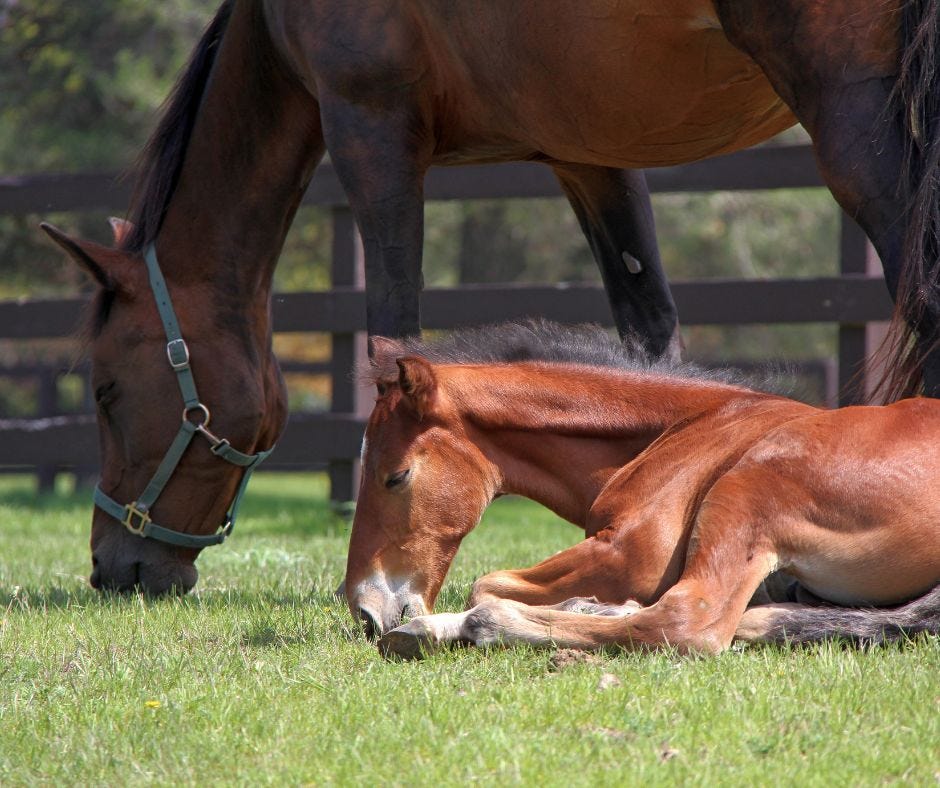We use cookies to make your experience better. To comply with the new e-Privacy directive, we need to ask for your consent to set the cookies. Learn more
Equine Probiotics help Gastrointestinal Problems in Foals
With foals there are several GI problems which may occur and some of them can be life-threatening.
A foal’s digestive system is susceptible to various problems especially in the first few days after birth.
Clinical signs of GI problems in foals include fever, diarrhea, abdominal distension, spending more time lying down, depression, and difficulty in defecating.
Some common digestive problems experienced by foals
Meconium Impaction
Meconium impaction is a common type of colic experienced by neonatal foals aged 12-24 hours. Normally, the first stool or the meconium, is passed shortly after the foal consumes the special milk produced by the mare called colostrum. However, there are occasions when the foal cannot pass the meconium successfully.
The colostrum is produced immediately following the birth of the foal. It contains immunoglobulins necessary to protect the foal from harmful bacteria keeping him healthy until such time his immune system develops properly, which would be at around 8-10 weeks.
A veterinarian will perform a digital examination to confirm the presence of meconium impaction. This condition can be corrected using enemas or oral laxatives.
It is not recommended for horse owners to remove the meconium manually from the rectum as this can cause damage to the rectal mucosa.

Gastric Ulcers
Even though foals are born healthy and sterile, 50% of them can still develop gastric ulcers. T
he severity of these ulcers may vary and some foals can exhibit only minor signs. Anti-ulcer medications such as equine omeprazole (sold by us as AbPrazole) can be given when the foal is four weeks older or more. Equine probiotics can also be used.
Diarrhea
Diarrhea can be a life-threatening condition because of possible severe dehydration.
Bacteria, parasites and viruses can cause diarrhea. Less commonly, gastric ulcers and lactose intolerance can also cause the condition. Treatment involves giving antibiotics, as well as fluids to prevent dehydration caused by diarrhea.
Equine probiotics can be helpful to treat several problems involving the GI tract. It helps keep the digestive system fully functional. Generally, equine probiotics are often recommended for use in horses and foals with gastrointestinal problems as well as those that are taking antibiotics. For a good choice of probiotics for horses and foals, use AbActive.








Validate your login